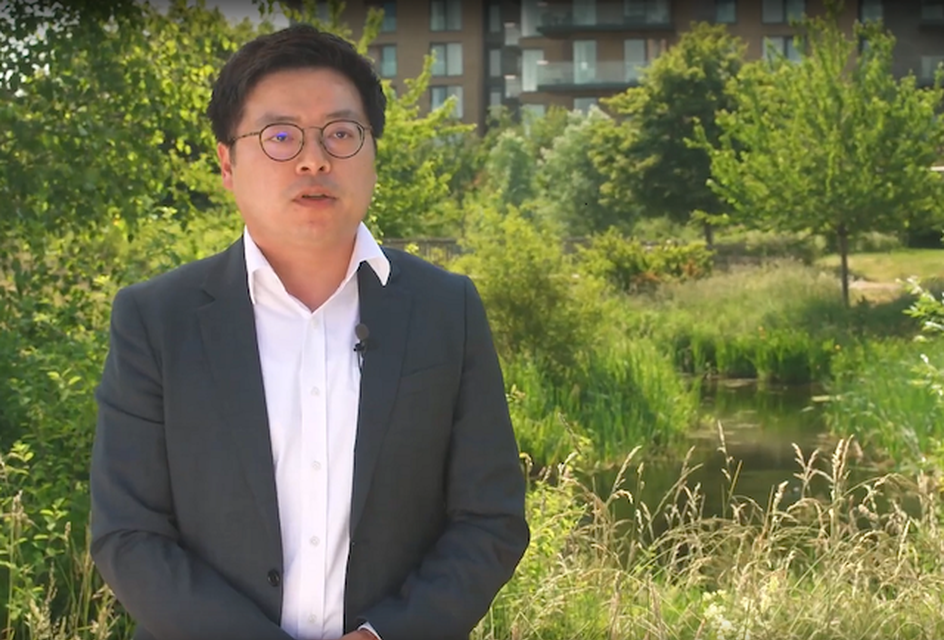Planning and health: An interview with Michael Chang
Author: RSPH 24 September 2023 1 min read
Michael speaks about his role in public health as Programme Manager for Spatial Planning and Health at the UK Office for Health Improvement and Disparities.

What is your favourite part of your role?
My role is surprisingly varied for someone who works in the civil service! I enjoy the diversity and variety of policy issues just within my own programme area, but this is expected given the breadth of influence the spatial planning system has on determinants of health.
Can you give us an overview of your career path in public health
I undertook a planning undergraduate degree from the University of Auckland, during which time I worked both in local government and in a planning consultancy before moving to the UK to do a masters in urban regeneration at UCL. I then volunteered and subsequently secured a permanent post at the Town and Country Planning Association (TCPA).
I got into planning because I wanted to make a positive impact to places and the environment. I would like to say that I got into Public Health because I was passionate and committed to improving population health through my profession but that wasn’t the case. Because public health knowledge and skills didn’t feature explicitly in my early educational and career journey, I didn’t know about the ability to make a difference other than through mainstream planning. It wasn’t until a project at the TCPA with the Department of Health and Hyde Housing looking at the role of the joint strategic needs assessment in planning that was the main trigger. This ignited a world of possibilities of working at the intersection of planning and public health, so I set up the Reuniting Health with Planning programme.
Then I had the opportunity to move to Public Health England to lead the planning and health programme after an earlier secondment and the rest is history.
I am a chartered town planner and was made an honorary member of the Faculty of Public Health to recognise those non-health professionals who have made a significant contribution to public health.
What support could have helped with this?
Planning for health as a specialist area wasn’t and isn’t still a mainstream educational and career choice so I have had to create and initiate a lot of my own learning and networking. There were a couple of leading experts who helped shed some light, but a critical mass wasn’t available to provide technical, peer-to-peer and institutional support, and funding was limited to upscale and sustain activities. That was why I set up the Health and Wellbeing in Planning Network in 2018 with two public health professionals to help fill the support gap.
In your role, how do you support/improve the public’s health and wellbeing?
Everything I do is about supporting public health and well-being, whether it’s working within OHID’s remit set out by the government or understanding what local health priorities are and curating projects/ workshops to support local government to take action. I don’t get directly involved in grassroot public health initiatives or projects, so I make my impact in a different way through influencing national and local system actors and enabling them to take the necessary actions to make a difference.
What are the biggest challenges you are facing within your role right now?
There are still challenges in creating a critical mass or generation of professionals with the necessary competency and proficiency in linking built environment and public health agendas. But I am seeing positive developments in local government and also most impressed by growth in the private sector. We just now need to strike the right balance in aligning ambition and rhetoric with regulation and action, and properly resourced not just in terms of money but also education and professional development.
What area(s) of public health are you the most passionate about?
I am most passionate about preventative public health where planning and managing the built and natural environment in ways that can support and maximise population mental and physical well-being.
What advice would you give to someone considering joining the wider public health workforce?
Don’t think twice and you may already be part of the public health workforce whether you know it or not. But the key is acknowledging what you do will influence people’s health whether intentional or unintentional. Embrace new skills and knowledge which you should and will need, but most importantly to recognise that you are part of the wider work force so teamwork and collaboration is important.
